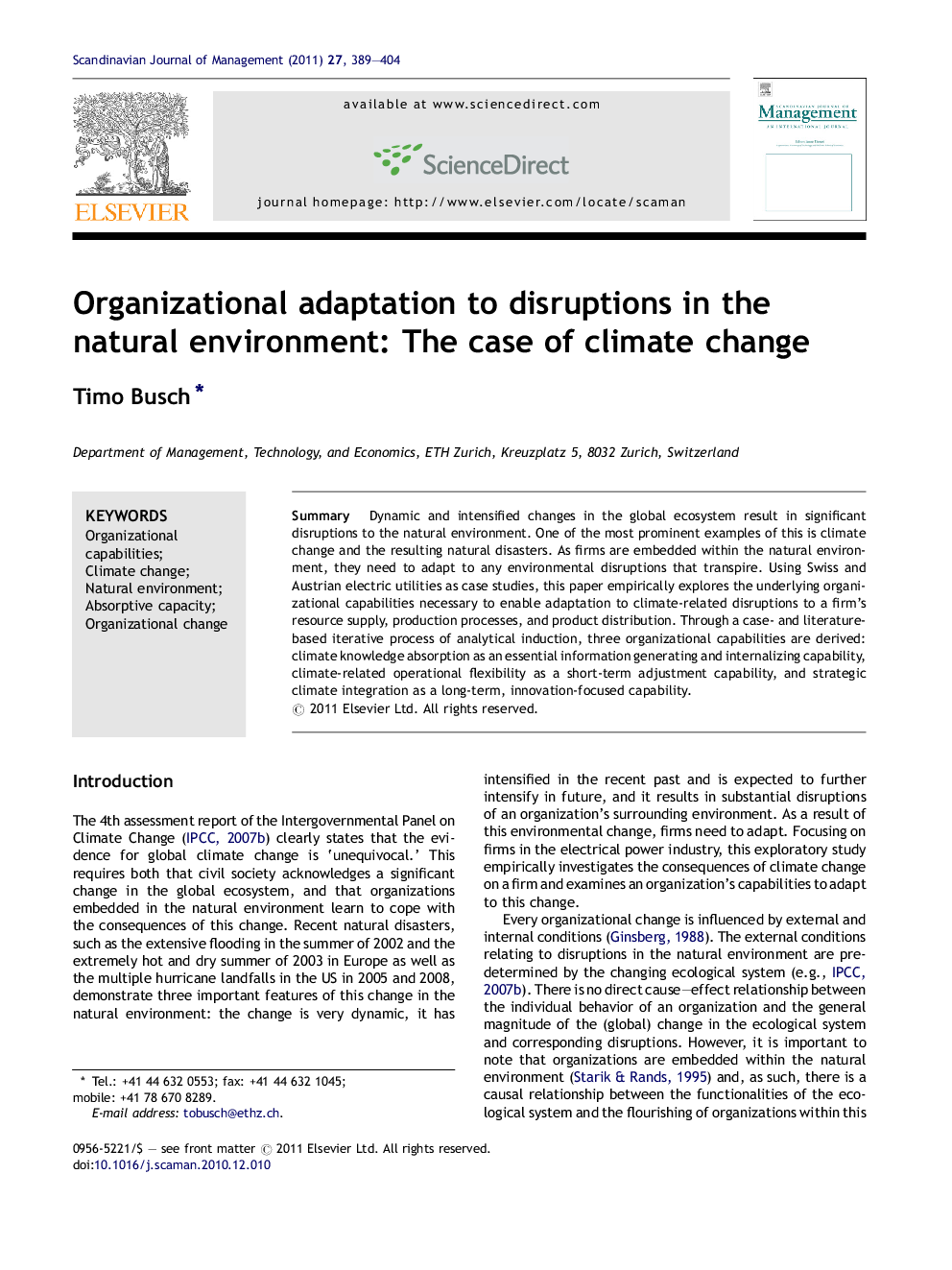| Article ID | Journal | Published Year | Pages | File Type |
|---|---|---|---|---|
| 896172 | Scandinavian Journal of Management | 2011 | 16 Pages |
SummaryDynamic and intensified changes in the global ecosystem result in significant disruptions to the natural environment. One of the most prominent examples of this is climate change and the resulting natural disasters. As firms are embedded within the natural environment, they need to adapt to any environmental disruptions that transpire. Using Swiss and Austrian electric utilities as case studies, this paper empirically explores the underlying organizational capabilities necessary to enable adaptation to climate-related disruptions to a firm's resource supply, production processes, and product distribution. Through a case- and literature-based iterative process of analytical induction, three organizational capabilities are derived: climate knowledge absorption as an essential information generating and internalizing capability, climate-related operational flexibility as a short-term adjustment capability, and strategic climate integration as a long-term, innovation-focused capability.
► There is clear scientific evidence that global climate change is unequivocal. ► This requires that organizations learn to cope with the consequences of this change. ► This paper empirically explores the underlying organizational capabilities necessary to enable firms to adapt to climate change. ► Three capabilities are derived: Climate knowledge absorption, climate-related operational flexibility, and strategic climate integration.
